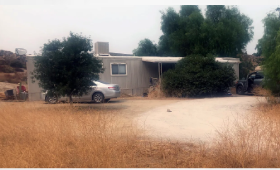KFF Health News
WASHINGTON – A new study published Thursday finds that several mushroom candies, which are widely promoted as containing legal psychedelic ingredients, actually contain illegal hallucinogens.
The study sampled products sold in gas stations and smoke shops near Charlottesville, Va. It identified the Schedule I drug psilocin in mushroom candies sold under the brand names Diamond Shruumz and Wonderland Legal Psychedelics. A product sold under the brand Urb contained both psilocybin and psilocin. Both chemicals are psychoactive compounds found in magic mushrooms, which make users hallucinate.
Another product tested by the University of Virginia researchers, Psilly’s Legal Psychedelic Mushrooms, did not contain the illegal hallucinogens, but did include the stimulant ephedrine. The Wonderland product also contained the active ingredient in kratom, the herbal substance known to cause opioid-like effects.
All of these brands advertise that they provide some level of psychedelic experience, however, they purport to contain legal alternatives to illicit drugs. The Diamond Shruumz products that were tested advertise containing lion’s mane, chaga, and reishi mushrooms – all of which can be safely eaten and are commonly found in health food stores. The Urb product says it contains muscimol, a federally legal substance known for having psychoactive properties.
Read more
‘Legal’ psychedelic mushrooms actually contain illegal hallucinogens, study shows
Notes from the Field: Schedule I Substances Identified in Nootropic Gummies Containing Amanita muscaria or Other Mushrooms — Charlottesville, Virginia, 2023–2024
Weekly / July 18, 2024 / 73(28);628–630
Avery Michienzi, DO1; Jeremy Hamlin2; Rita Farah, PharmD, PhD1; Lindsay Bazydlo, PhD3 (VIEW AUTHOR AFFILIATIONS)
Summary
What is already known about this topic?
Gummies listing the hallucinogenic mushroom Amanita muscaria or other unnamed mushrooms as ingredients have been marketed as “nootropics” (substances taken to enhance cognitive function). A. muscaria can cause hallucinations, agitation, gastrointestinal upset, and seizures.
What is added by this report?
During September 2023–June 2024, five persons required hospital evaluation after ingesting gummies labeled to contain A. muscaria. Five brands of gummies marketed as mushroom-containing nootropics were analyzed; three contained unlabeled Drug Enforcement Administration schedule I substances psilocybin and psilocin.
What are the implications for public health practice?
Health care providers and the public should be aware that edible products marketed as mushroom-containing nootropics might contain undisclosed ingredients and have been linked to severe illness. Persons who experience symptoms after consuming these products should seek immediate medical attention.
Since late 2023, according to conversations between investigators and smoke shop employees, gas stations and smoke shops in Virginia have been selling mushroom gummies, marketed as nootropics (substances taken to enhance cognitive function) or psychedelics. These gummies are labeled to contain either Amanita muscaria or proprietary mushroom nootropic blends. Unlike other hallucinogenic mushrooms that contain the Drug Enforcement Administration (DEA) schedule I substance psilocybin, A. muscaria is currently legal.* A. muscaria contains ibotenic acid and muscimol and is used less commonly as a hallucinogen than are psilocybin-containing mushrooms because A. muscaria can cause undesired symptoms, including gastrointestinal upset, agitation, and seizures (1–3). During September 2023–June 2024, five patients, including one child, were evaluated in Virginia after ingestion of gummies listing A. muscaria as an ingredient. Because the actual contents of these novel mushroom gummies are unknown, samples from five brands were obtained for testing using liquid chromatography–mass spectrometry.
Investigation and Outcomes
During September 1–November 20, 2023, the Blue Ridge Poison Center (BRPC) in Charlottesville, Virginia managed four cases of illness in adults who had intentionally ingested mushroom gummies labeled to contain the A. muscaria mushroom and were evaluated in an emergency department (ED). All patients experienced tachycardia, confusion, anxiety or somnolence, and nausea, and one patient reported chest pain. Two patients received benzodiazepines, three received antiemetics, and all four received intravenous fluids. All patients were discharged from the ED within 12 hours. In June 2024, BRPC managed an accidental ingestion of two A. muscaria mushroom gummies by a child aged 3 years who was hospitalized with symptoms of somnolence and vomiting. The child required no interventions and was discharged 1 day later.
All patients managed by BRPC were reported to ingest different mushroom gummy brands, but all brands taken by the patients were labeled to contain muscimol,† ibotenic acid,§ and muscarine.¶ To determine whether these mushroom nootropics also contained other substances, investigators purchased six packages (five different brands) during October at gas stations and smoke shops near BRPC for testing. Because the specific brands reported by the patients were not available at these shops, investigators purchased three brands listing the same ingredients. In addition, two brands that were labeled to contain unspecified mushroom nootropics but were not labeled with A. muscaria were also purchased. Samples were analyzed by the University of Virginia Health Toxicology Laboratory using liquid chromatography–quadrupole time of flight on a Sciex X500R mass spectrometer. A qualitative untargeted approach was employed using independent data acquisition and substances identified using retention times, mass accuracy, and library matching.**
Mushroom gummies in four of the six bags tested were found to contain unlabeled psilocybin or psilocin, both of which are schedule I substances not currently legal in Virginia, where they were sold (Table). Additional unlabeled substances were found, including caffeine, ephedrine, and mitragynine (an opioid agonist commonly known as kratom). Ibotenic acid, muscimol, and muscarine were not present in the matching library, and their presence in the gummies was undetermined.
Preliminary Conclusions and Actions
The presence of the DEA schedule I substances psilocybin and psilocin in products legally sold at retail shops in Virginia represents a potential risk to the public. Further, the presence of mitragynine in one product is concerning because repeated mitragynine ingestion can increase the risk for opioid dependence (4). Whether persons who ingest gummies indicated to contain A. muscaria or other nootropics are aware that they might be receiving psilocybin or other substances represented as A. muscaria or if they desire the A. muscaria itself is unknown. Separate from the investigation described in this report, on June 12, 2024, CDC released a health advisory reporting that CDC, the Food and Drug Administration, and America’s Poison Centers†† are investigating cases of severe acute illnesses potentially associated with consuming one brand of mushroom gummies and chocolate bars, and are providing guidance for clinicians, public health practitioners, and the public.§§ Persons who believe they are purchasing gummies containing A. muscaria or other mushroom-containing gummies sold as psychedelics or nootropics should be aware that these products might contain undisclosed and potentially harmful substances. Clinicians should be aware that adults who consume these gummies can experience signs and symptoms that include hallucinations, altered mental status, tachycardia, and gastrointestinal upset. Mushroom gummy intoxication might appear similar to cannabis intoxication and can be included in the differential diagnosis of pediatric patients with unexplained somnolence or altered mental status (5). Urine drug screens commonly used in health care facilities do not usually detect the substances identified in these gummies¶¶; additional testing could be considered based on discussions with a poison control center or local health authorities.
Persons who purchase products advertised as psychedelic or nootropic mushroom gummies should be aware that package labels might not accurately represent the contents and that these products could contain substances that might produce unexpected and potentially toxic effects. Health care providers should counsel patients and caregivers that mushroom-containing edible products marketed with claims of health benefits might contain undisclosed ingredients and have been linked to illness requiring hospital care. Persons who experience symptoms after consuming these products should seek immediate medical attention.
Corresponding author: Avery Michienzi, [email protected].
https://www.cdc.gov/mmwr/volumes/73/wr/mm7328a3.htm?s_cid=mm7328a3_w


















